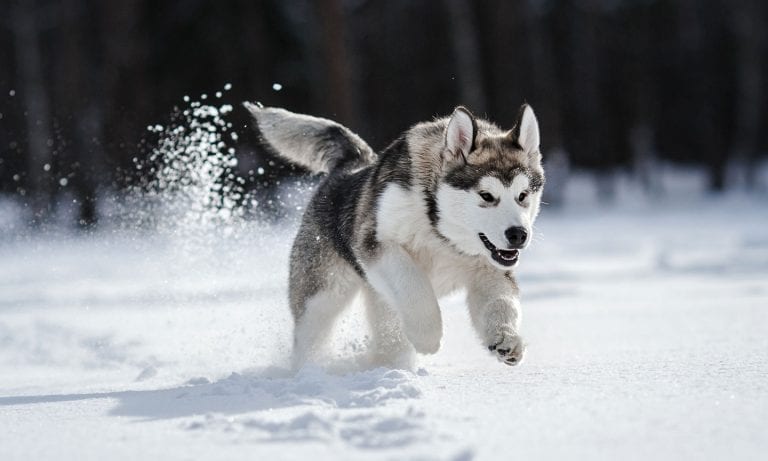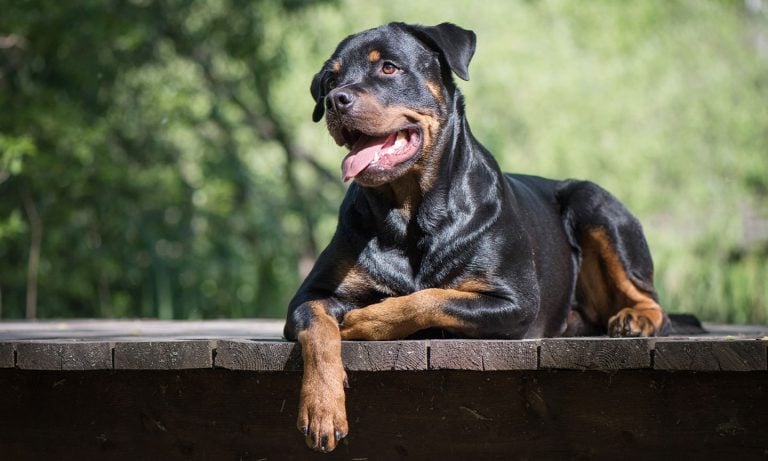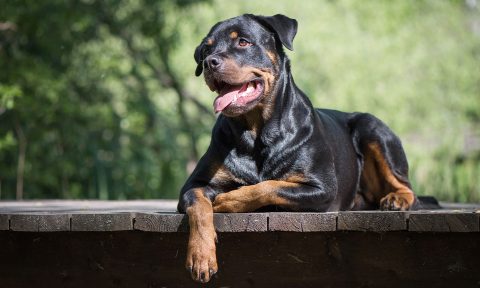Siberian Husky vs Rottweiler

Breed Snapshot
Best For
Siberian Huskies are as energetic as they are strikingly beautiful. This independent breed needs firm training, as well as consistent exercise and mental stimulation. If you're looking for a loyal canine partner to join your...
Siberian Huskies are as energetic as they are strikingly beautiful. This independent breed needs firm training, as well as consistent exercise and mental stimulation. If you're looking for a loyal canine partner to join your active adventures, this might just be the breed for you.
Siberian Husky Temperament
Siberian Huskies, renowned for their friendliness and intelligence, are wonderful companions who thrive on social interaction. They have an inherent need to be surrounded by both humans and fellow canines, and express their sociable nature in unique ways: Many will “talk” to you using howls, growls and whimpers, which is...
Siberian Huskies, renowned for their friendliness and intelligence, are wonderful companions who thrive on social interaction. They have an inherent need to be surrounded by both humans and fellow canines, and express their sociable nature in unique ways: Many will “talk” to you using howls, growls and whimpers, which is an endearing part of their personality.
Their affability comes with two caveats:
- Since they’re predisposed to welcoming strangers, they lack the traits of a typical guard dog. (Not a problem if you don’t need a guard dog!)
- Siberian Huskies don’t enjoy long periods of isolation or contemplation. In such circumstances where they are stressed or bored, they may contemplate, and act on, destructive behaviors. If left in the backyard, Huskies are notorious for their escape attempts. Secure fencing is a must to prevent exploratory escapades.
Huskies are also strong-willed, a trait that may make training a bit of a challenge. They’re typically good around kids and other dogs, but they do have a high prey drive and may chase cats and small animals. However, with an experienced pup parent who can train and socialize them consistently, they can be a well-behaved family member.
Siberian Husky Traits

Breed Snapshot
Best For
A popular working breed, Rottweilers do best with experienced pet parents who can provide early training and socialization. These robust, large-sized dogs thrive in homes with active individuals or families, appreciating both mental and physical...
A popular working breed, Rottweilers do best with experienced pet parents who can provide early training and socialization. These robust, large-sized dogs thrive in homes with active individuals or families, appreciating both mental and physical challenges.
Rottweiler Temperament
Rottweilers are powerful and intelligent dogs who benefit from early training and socialization. They are easy to train and eager to please their families, but are also strong-willed and may seem aloof to the outside world. Originally descending from the mastiffs of the Roman legions, Rottweilers have been valuable...
Rottweilers are powerful and intelligent dogs who benefit from early training and socialization. They are easy to train and eager to please their families, but are also strong-willed and may seem aloof to the outside world.
Originally descending from the mastiffs of the Roman legions, Rottweilers have been valuable companion animals and working dogs for centuries. This is just as true today as it was years ago—families that are willing to put in the time to train and socialize their Rottweiler will be rewarded with an intensely loyal and energetic dog.
In fact, Rottweilers are much more emotionally needy than many people assume. This dog has a fearsome reputation, but in reality, Rottweilers are obsessed with their people and want to be around them all the time. Rottweilers who are isolated from people or kept alone may begin to exhibit unwanted behaviors when they do finally get access to people.
Rottweilers were originally bred to be protectors. Combined with their great strength, this makes it especially important that Rottweilers are properly trained and socialized. Once socialized, Rottweilers can easily get along with other dogs and young children. Like any dog, Rottweilers who are poorly trained, subjected to harsh discipline, or isolated are more likely to exhibit unwanted fear-based behaviors, including biting and aggression.
One especially interesting features of these dogs is their vocalization. Rottweilers aren’t known for excessive barking (although of course they can and will bark), but they do have a deep rumble that sounds almost like a growl. Some pet parents think of this rumbling sound as “talking.” This “Rottie rumbling” is almost like the purring of a giant cat and often means your Rottweiler is happy and content, particularly during belly rubs.




